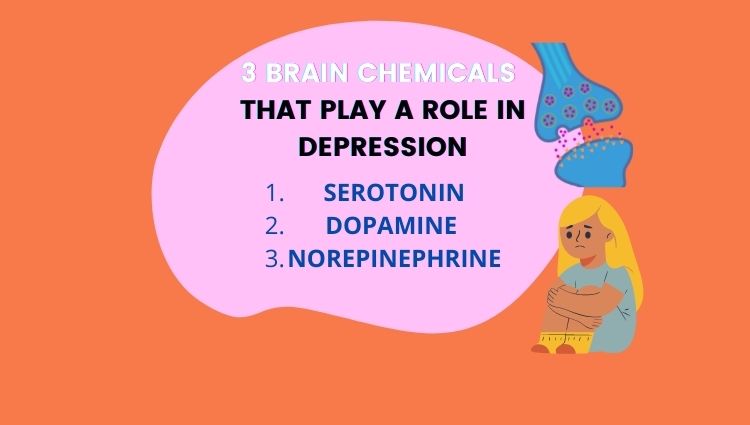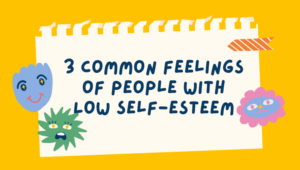Depression is a complex condition that scientists are still trying to understand. What we do know is that it involves changes in the brain. In this blog post, we’ll explore what’s going on in your brain when you’re depressed.

Brain Chemicals Related To Depression
It’s no secret that depression and other mental health disorders can take a toll on your brain chemistry. But did you know that the reverse is also true? That’s right, your brain chemistry can also influence your mood and overall mental health.
There are a number of brain chemicals (or neurotransmitters) that play a role in depression and other mental health disorders. These include serotonin, dopamine, and norepinephrine. Each of these chemicals plays a different role in your brain and can be affected by different things.
For example, serotonin is a brain chemical that’s responsible for stabilizing your mood. When levels of serotonin are low, you’re more likely to feel depressed. Serotonin levels can be affected by things like stress, diet, and sleep.
Dopamine is another brain chemical that’s linked to depression. It’s responsible for things like motivation and pleasure. When levels of dopamine are low, you may feel less motivated to do things and you may not find things as pleasurable as you once did. Dopamine levels can be affected by things like medications, sleep, and exercise.
Norepinephrine is a brain chemical that’s responsible for your energy levels and alertness. When levels of norepinephrine are low, you may feel tired and sluggish. Norepinephrine levels can be affected by things like stress, diet, and medications.
How To Treat Depression With Brain Chemicals
You can’t always control what goes on in your life, but you can control how you react to it. That’s especially true when it comes to your brain chemistry.
If you’re struggling with depression, it may be due in part to a chemical imbalance in your brain. But that doesn’t mean you have to suffer.
There are things you can do to help your brain chemistry get back on track. In fact, making some simple lifestyle changes can be just as effective as taking medication.
Here are some things you can do to treat depression with brain chemicals:
1. Get regular exercise
Exercise is one of the best things you can do for your mental health. It helps to relieve stress and anxiety, and it can also improve your mood.
Plus, exercise releases endorphins, which are feel-good chemicals in your brain. So if you’re feeling down, a workout can give you an instant mood boost.
2. Get enough sleep
Sleep is another important factor in mental health. If you’re not getting enough sleep, it can make you feel more anxious and depressed.
Make sure you’re getting at least 7-8 hours of sleep each night. And if you can, try to stick to a regular sleep schedule. That means going to bed and waking up at the same time each day.
3. Eat a healthy diet
What you eat can also affect your mood. If you’re eating a lot of processed foods, sugary snacks, and unhealthy fats, it can make you feel sluggish and depressed.
But if you focus on eating healthy foods, like fruits, vegetables, and lean protein, it can help to improve your mood and energy levels.
4. Take supplements
There are some supplements that can be helpful for treating depression. omega-3 fatty acids, for example, are known to be good for brain health.
You can also try taking a vitamin D supplement. Vitamin D is involved in the production of serotonin, a brain chemical that helps to regulate mood.
5. Avoid alcohol and drugs
Alcohol and drugs can actually make depression worse. So if you’re struggling with depression, it’s important to avoid them.
6. Connect with others
One of the most important things you can do for your mental health is to connect with others. Isolation can make depression worse, so make sure you’re staying connected with family and friends.
You can also connect with others who are dealing with depression. There are many online support groups and forums where you can share your experiences and get support from others.
Conclusion
Treating depression with brain chemicals is possible. But it’s important to remember that it takes time. So be patient with yourself and don’t expect overnight results.






